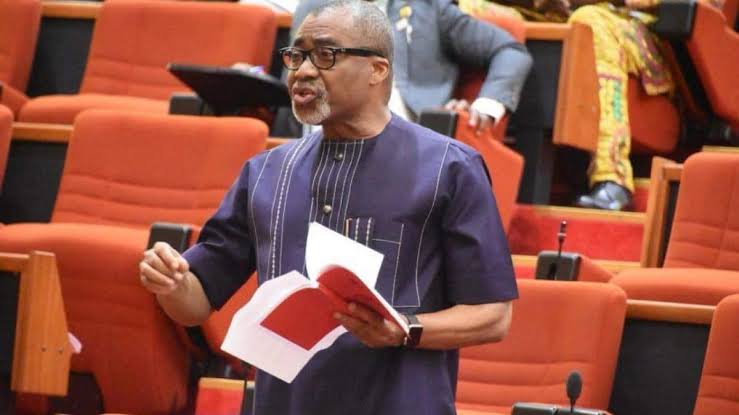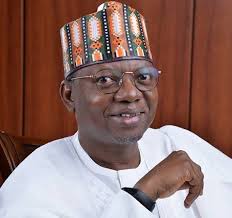**panel wants tariff hike suspended
The Senate report seeking the suspension of hike in electricity tariff resulted in another round of a rowdy session in the Senate chamber on Thursday, after the debate on the report was brought to a halt abruptly by the leadership
The Senator Eyinnaya Abaribe-led Senate’s committe on Power had recommended among others that the National Electricity Regulatory Commission (NERC) should suspend the ongoing implementation of MYTO, 2024 which approved over 200% upward review of the previous tariffs from N68/kWh to N225/kWh to allow for robust consultation with customers on the various bands on the cost of service instead of heavy reliance on feeder location and duration of service which are difficult to determine and monitor”

The report which was presented to the senate by Abaribe also recommended that “NERC should ensure full compliance with the mandatory requirement of stakeholder consultation under Section 48 of the Electricity Act, 2023 regarding future regulatory decisions to avoid a repeat of the confusion and public outcry that trailed the recent tariff increase”.
But immediately the report was presented the 10-point recommendation, senators took their turns to condemn the hike in tariff and pointed out that it was done amidst high cost of living.
Chief Whip of the Senate, Ali Ndume said the plan by NERC was discriminatory and unconstitutional.
“I am surprised with the sudden hike in electricity tariff which is against the constitution. When I heard about this, I checked the constitution and what they did was discrimination which is against the constitution.
“If you are living among the masses, you are getting power from Band A and others are not, it’s discrimination,” Ndume said stating that he is happy the president is not buying into such policies.
Sen Isah Jibrin (Kogi East) said the government must intervene in some sectors of the economy particularly power sector.
“Most of the companies in Nigeria today cannot operate because of power. Government should invest by way of subsidies,” he said.
The Senate minority leader, Abba Moro said what was going on in Nigeria was very sad.
He revealed that Nigerians provide transformers for their communities and pay the electricity companies to install them and after which electricity companies take ownership of the transformers.
Sen Adamu Aliero (Kebbi Central) said the increment in electricity tariff was done without consultation and urged the Senate to swing into action by adopting the committee report.
Also speaking, a former senate leader, Yahaya Abdullahi (Kebbi North) said the power sector is so segmented to the detriment of the consumers.
He said the amount of resources spent on power is always wasted.
While deliberations were ongoing, Sen Jimoh Ibrahim (Ondo South) said as beautiful as the matter was, the Senate should give respect to the judiciary, an affirmation of an earlier point of order raised by Sen Titus Zam (Benue North East), to the effect that a Kano High Court is already entertaining the matter of the electricity hike.
Ibrahim advised that since the case is in court, the Senate should not be the judge, urging the Senate to step down the report.
Ruling on the matter, the Deputy President of the Senate, Barau Jibrin who presided over the plenary said he knew about the order of the court adding that he is constrained.
“There is a need for us to have restraint,” Barau said, adding that having listened to the comments of Sen Zam, who is the chairman of rules and business, their is need to stepped down debate on the report.
Other recommendations of the committee are “that the Ministry of Power and NERC should in the meantime adopt measures to address the problem of power scarcity holistically rather than its preoccupation with price manipulation which has proven to be counterproductive.
“That NERC should hold the DISCOs accountable on Key performance Indicators (KPIs) including failure to deliver on CAPEX and OPEX allocations, customer metering obligation under the Electricity Act, 2023, essential customer service obligations including customer sensitization, implementation of energy credits for customers who invested in transformers meters and other assets on the DISCO networks.
“That rate designs should only be cost-reflective if proper account is taken of the relevant macroeconomic environment that determine the affordability of electricity to the different segments of the market”
The committee also recommended “that the Federal Government metering intervention should be encouraged and intensified to address current metering gap of 6.3 million and this must be pursued by the FGN without prejudice to the statutory obligation of DISCOS to meter their customers as provided under Section 68(1)(b) of the Electricity Act, 2023. In this regard, Mr. President should be commended for the introduction of the Presidential Metering Initiative.
“That the Federal Ministry of Power should be advised to intensify efforts towards honouring the subsisting contract with Ziklagsis Networks Ltd (ZNL) for the manufacture, supply, installation, management and maintenance of Pre-Paid Meters (PPMs) in Nigeria including the recent Tripartite Metering Project Consortium Agreement between ZNL and De-Haryor Global Services Limited and the Nigerian Army dated 7th September, 2023 which was signed by ZNL for the metering of Army Barracks and other Military Facilities or in the alternative refund the initial funding to the Federal Government.
“That vigorous implementation of power decentralization provided for under the Constitution of the Federal Republic of Nigeria, 1999 (As Amended) and the Electricity Act, 2023 to relieve the Federal Government of the pressure to electrify every nook and cranny of this country should be encouraged.
And “that the Ministry of Power should establish Electricity Consumer Protection (ECP) Unit to develop, implement and enforce Electricity Consumer Protection component of the Electricity Act, 2023. 34(2)(c) and 119 (1)(f)”




